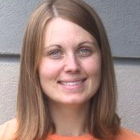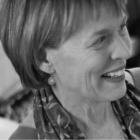What specific research are you involved in?
I’m studying molecular mechanisms of cardiac arrhythmias. It turns out the heart is easily made to malfunction by drugs that are intended for other things. Actually about 50 percent of all drugs being tested induce arrhythmias in some people. I’m trying to find out at the molecular level why this happens.
How did you come to study this?
I had always wanted to be a medical doctor and probably would have gone to medical school had I not worked in a hospital during college. One thing I learned about myself while working there is that I like to invest in people but had a very difficult time when people in my care died. I found myself pulling away and decided I couldn’t do that distancing thing that I imagine doctors have to do.
In my classes during college, I learned that I had a passion for finding out the nitty-gritty details of how biological systems worked. Moreover, I had been told that I was a natural at teaching, which I have always really enjoyed. With these two interests, I decided the best thing for me may be to teach the next generation of doctors instead of being one myself and along with this, have the opportunity to do research and discover how body systems work. Thus, I chose to go to graduate school in physiology which provides a very holistic approach to studying the body — concerned with both the molecular and the systemic aspects of biology.
What do you enjoy about your study or your research?
I enjoy delving deep into unknown territory, finding things out that have never been defined before. Specifically, I like the relevance my research has to figuring out what goes wrong at the smallest level to produce huge body problems like cardiac arrhythmias.
How does your faith connect with your study?
As with any research, I’m figuring out what God created in the first place. As Christians, we’re always looking at the two kinds of revelation God has given to humans: in written word and in creation. I get to study the small but so significant parts of that creation and hopefully impart a little bit of the joy of figuring things out to the next generation of scientists and doctors as well.
How is your work relevant to other Christians?
Because I’m a scientist I have some ability to evaluate hot issues such as evolution, the biological basis for homosexuality, and stem cell research. Christians often don’t want to go deeper into these issues to understand them as they may be afraid of where it will lead. I think Christians who are scientists can be a real resource for the Christian community.
What gives you the most challenge in your current study?
I am near the end of my degree, and I feel like I have about a million different little projects to tie up. As with any science, sometimes experiments stop working for no apparent reason — just when you really get them going! I guess, though, that it is exactly this that makes the joy of finding things out that much greater, when the research actually does come together.
A book you would recommend?
I really enjoyed The Language of God by Francis Collins, director of the Human Genome Project. The book is a discussion of the project and of the themes of creation and evolution. Collins is a Christian and as well respected a scientist as you can get.
Other interests?
I play trumpet for worship and for a folksy band, The Pine Box Orchestra, and enjoy spending time with my new husband (a fellow grad student and cello player for the PBO). I’m also involved in IV grad group leadership and like to run or cross-country ski depending on the weather.

Revised 2/19/09





